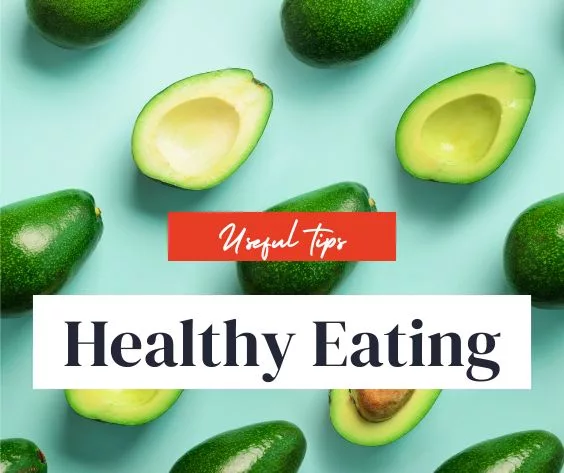Healthy Eating Plans for the Golden Years
- Introduction
- Why Seniors Need a Customized Healthy Eating Plan
- The Weight of Aging
- Free Resources to Get You Started
- A Week of Wholesome Eating
- The Building Blocks of a Healthy Diet
- Making Healthy Eating Fun
- Overcoming Barriers to Healthy Eating
- The Role of Supplements in a Senior Diet
- Conclusion
- FAQs
Introduction
Healthy eating plans aren’t just for the young and spry. They’re the ticket to.
As we enter our golden years, our nutritional needs change and we need to steer our diet in the right direction.
Nutritious foods for seniors are key to overall health and well being as we age.
So let’s get started and discover how to nourish our bodies in the best way possible.
Why Seniors Need a Customized Healthy Eating Plan
Age is just a number, but our nutritional needs? Well, they’re a bit more specific. As we age, our metabolism slows down and our digestive system changes.
This means the same diet we thrived on in our 30s might not be ideal in our 60s or 70s. Healthy eating plans for seniors are designed to address these changes.
They focus on nutrient dense foods that fuel our bodies, support brain and cognitive function, prevent cognitive decline and keep our bones strong. Choosing foods designed for the older adult can help manage or prevent chronic disease and chronic conditions.
And with the right foods we can keep those pesky age related ailments at bay!
The Weight of Aging
Gaining a few extra pounds as we age seems like a rite of passage, but it doesn’t have to be. While our metabolism might not be as hot as it used to be, with the right diet we can maintain a healthy weight. Unintentional weight loss can also be a concern for seniors and should be monitored to maintain a healthy level of nutrition.
And let’s debunk a myth while we’re at it: No, it’s not “natural” to gain weight as we age. It’s all about the choices we make.Healthy eating plans to lose weight focus on balanced meals, portion control and mindful eating. Choosing smaller portions can help maintain a healthy level of nutrient intake and avoid excess calories, for weight management and overall health. Remember it’s not about dieting; it’s about a sustainable healthy lifestyle.
Free Resources to Get You Started
The digital age isn’t just for the young. There’s a treasure trove of online resources, apps and websites for healthy eating for seniors.
From meal planners to grocery lists, the internet has got our backs. Creating a shopping list with nutrient dense fruits and vegetables can help seniors make healthier choices. Healthy eating plans for free can be a great starting point.
But remember to always tailor any plan to your specific needs. And if in doubt consult a nutritionist or healthcare professional.
A Week of Wholesome Eating
Ready to dive into a week of delicious, nutritious meals? Let’s explore a 7 day healthy eating plan free from complicated recipes.
It’s important to include many foods from different food groups to ensure a balanced intake of nutrients, for overall health and well being.
Think hearty breakfasts, vibrant salads, protein packed dinners with options like lean meats, kidney beans, black beans and brown rice, and yes, even the occasional treat (because life’s too short not to enjoy chocolate every now and then).
For those with dental issues or difficulty chewing consider soft, easy to eat foods like scrambled eggs, mashed potatoes and cottage cheese. Plain yogurt is also a healthy dairy option for breakfast or snacks.
Preparing healthy snacks in advance can help you make better food choices and avoid less nutritious options.
Healthy eating plans are online but always ensure they’re designed for seniors. Our nutritional needs are unique and our meal plans should reflect that.
The Building Blocks of a Healthy Diet
At the heart of every healthy diet are a few key components: protein, healthy fats and complex carbs. But it doesn’t stop there. Vitamins and minerals play a crucial role especially in our senior years. Dairy products are an important source of calcium for seniors, for bone health and to prevent osteoporosis.Think calcium for bones, vitamin D for mood and omega-3s for brain health. Hydration is another important one. And no, coffee doesn’t count (sorry!). Aim for clear, refreshing water, herbal teas and the occasional fruit infused drink. Water rich foods like bell peppers can also help you stay hydrated. Staying hydrated is especially important for those taking certain medications as some medications can increase the risk of dehydration.
Healthy eating tips are plenty but always remember: variety is the spice of life. Limit processed foods, monitor added sugars and saturated fats on nutrition labels and make conscious choices about what you eat for better disease control like managing blood pressure and reducing cardiovascular risk.
Rotate your foods, try new recipes and enjoy the rainbow of fruits and veggies available.
Making Healthy Eating Fun and Enjoyable
Who said healthy eating had to be boring? With the plethora of recipes available every meal can be a culinary adventure.
From trying out new cuisines to revisiting old classics with a healthy twist the world is your oyster (which by the way is an excellent source of zinc!). And here’s a humorous tidbit:
Ever wondered why Brussels sprouts the dreaded vegetable of our childhood suddenly taste so good? It’s all thanks to our evolving taste buds!
Overcoming Common Barriers to Healthy Eating
Reduced appetite? Dental problems? Limited mobility making grocery shopping a challenge? We’ve all been there.
Older adults may face unique health issues that impact their ability to shop for and prepare nutritious foods making it important to find solutions tailored to their needs.
But with a bit of planning and some handy hacks these barriers can be overcome. For instance consider meal delivery services or online grocery shopping if mobility is an issue.
And for those with dental problems soft foods and smoothies can be both nutritious and easy to eat. Reflecting on what has been eaten each day helps ensure nutritional needs are being met.
The Role of Supplements in a Senior Diet
While whole foods should always be the primary source of nutrients sometimes supplements can play a supporting role.
Whether it’s vitamin D in the winter months or a B-complex for energy always consult with a healthcare professional before starting any new supplement.
They can guide you on the right dosage and ensure there are no interactions with medications.
Conclusion
Healthy eating in our golden years is more than a diet; it’s a lifestyle. It’s about nourishing our bodies, enjoying every bite and reaping the benefits of good health.
So here’s to vibrant salads, hearty soups and the joy of sharing meals with loved ones. Cheers to the golden years and the golden meals that come with them!
FAQs:
What is a healthy eating plan for seniors?
A healthy eating plan for seniors is designed to meet the unique nutritional needs of older adults.
By addressing age related nutritional needs such a plan supports healthy aging and helps to maintain overall health and wellbeing as we age.
It focuses on nutrient dense foods that support bone health, heart health and overall vitality and takes into account slower metabolism and specific dietary requirements.
Are there specific foods seniors should eat?
Yes! Seniors should eat lean proteins, whole grains, fruits, vegetables, leafy greens and healthy fats.
Foods high in calcium, vitamin D and omega-3s are particularly good for bone and heart health. Leafy greens are especially valuable as they are high in fiber, calcium, vitamins A and K and iron and can help reduce the risk of heart disease and osteoporosis.
How do senior’s nutritional needs differ from younger adults?
As we age our metabolism slows down and we may need fewer calories.
But we need more of certain nutrients like calcium and vitamin D.
Seniors also need more fiber to aid digestion and may need to watch their salt and sugar intake more closely. Dietary changes such as increasing leafy greens and whole grains can help prevent or manage cardiovascular disease and heart disease as we age.
Can seniors follow a weight loss eating plan?
Yes but it’s important to make sure it’s balanced and provides adequate nutrition.
Always best to consult with a healthcare professional or nutritionist before starting any weight loss program.
What about dietary restrictions due to medications or health conditions?
Many seniors have dietary restrictions due to medications or health conditions.
It’s important to work with a healthcare provider to tailor a healthy eating plan that takes into account these restrictions.
Is the 7 day healthy eating plan free suitable for diabetics?
The 7 day plan is a general guide to healthy eating.If you have diabetes or other specific health conditions you should adjust the plan or consult with a nutritionist to make sure it’s suitable for you.
How often should seniors review their eating plans?
It’s a good idea to review and adjust your eating plan annually or whenever there are significant changes in health status, activity levels or medications.
How can seniors start to transition to a healthier diet?
Start small! Add more fruits and vegetables, choose whole grains over refined ones and lean proteins.
Drink plenty of water and reduce salt and sugar gradually. Remember every healthy choice counts!
How can seniors ensure they are getting a balanced diet?
Keeping a food diary, using portion control and occasionally consulting with a nutritionist can help with a balanced diet.
Also variety is key. Rotate different foods to get a mix of nutrients.
What if I have mobility issues and can’t prepare meals?
There are many services available from meal delivery to senior community centers that offer nutritious meals.
Simple and easy to prepare recipes can be a lifesaver.
Don’t hesitate to ask for help or explore what’s available in your community.
It’s never too late to make healthier food choices. Every meal is an opportunity to nourish your body and enjoy the journey of senior living!








3 Comments
Comments are closed.